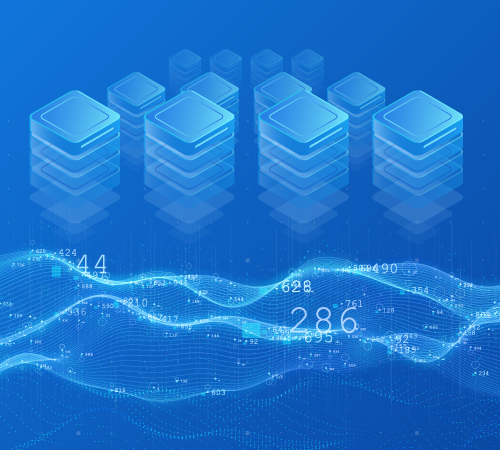The data lake vs. data warehouse debate is warming up, making it hard for enterprises to choose the best data storage solution. As the technologies are evolving fast, it’s clear that the debate between the two types of data storage isn’t going to fade anywhere soon.
The market has become increasingly competitive with the release of Amazon Redshift, Snowflake, Google BigQuery, Databricks, and others. Though data warehouses and data lakes are extensively used for data storage, they differ in certain aspects like cost, purpose, agility, etc.
If you’re confused about which is better between data lake and data warehouse, this guide is for you. Here we’ll help you decide which big data storage solution is the best for you.
What Is Data Lake?
Generally, a data lake is a large, highly scalable data storage solution that helps you store vast amounts of raw data in its original format. With a larger storage capacity than data warehouses, a data lake can store structured and unstructured data without a specific purpose or fixed limitations.
As the data in a data lake comes from disparate sources, it can be unstructured, structured, or semi-structured. Enterprises wanting a solution where they can collect and store large amounts of data without needing to process or analyze it immediately can choose a data lake.
What Is Data Warehouse?
On the contrary, a data warehouse is a large repository of business data accumulated from operational and external sources. A data warehouse allows users to access filtered, structured, and processed data for a specific purpose.
Enterprises have been drawn to data warehouses as they help the in-house team to share data and content between different departments. The most popular big data solution is Snowflake, and many enterprises are shifting from SQL to Snowflake to improve the storage of high-quality and refined data.
Key Differences Between Data Lake Vs. Data Warehouse
Data lakes vs. data warehouses differ considerably based on purpose, data structure, security, cost, etc. To help you understand better, here are the core differences between the data lake and warehouse in detail.
Purpose
The choice between the data lake or warehouse depends on your business purpose.
- Data within the warehouse is structured and refined, so data scientists can use the data for a specific purpose.
- A data lake stores raw data with no particular purpose for an enterprise.
Many enterprises start with a data lake and eventually migrate their stored data to the warehouse for extraction, filtering, and refining.
Cost
Data lakes are less expensive than data warehouse solutions.
- All forms of data can be seamlessly transferred to the data lake, making it highly flexible and scalable.
- On the other hand, you’ve to change data to a fixed schema to transfer it into the data warehouse.
When you can transfer all the data into one place (data lake) without adhering to a fixed schema, it reduces the overall expenses. In the case of a data warehouse, you’ve to filter the data before transferring it to the new data sources, making it an expensive solution.
However, with a data warehouse, you can quickly and easily analyze data to extract information. As a result, data warehouses become a profitable solution in the long run.
Data Structure
Data lake technologies use a schema-on-read method, whereas data warehouse uses a schema-on-write approach to store structured data.
- The data warehouse is home to structured and processed data.
- Unlike a warehouse, the lake stores different types of unfiltered and unprocessed data.
Accessibility & Agility
Another major key difference between a data lake and a data warehouse solution is accessibility.
- Data lakes are agile and flexible, allowing data to be stored and added quickly.
- On the contrary, data warehouses are specific in structure and hard to alter. The ‘read only’ format allows data analysts to scan and gather insights from clean, historical data.
What Should You Choose: Data Lake Or Data Warehouse?
Azure data lake and data warehouse are widely used for big data storage, with over 70% of enterprises moving to Microsoft Azure cloud services. However, they both have pros and cons, with warehouses regarded as easy to use and secure but less agile and costly. On the other hand, data lakes are less expensive and flexible solutions, but they lack some security and require expert interpretation.
Depending on your enterprise needs, you can choose which is right: data lakes or data warehouses. If you want to know more about data lake vs. data warehouse or migrate data from one repository to another, seek expert help from the Inferenz team today.
FAQs
Can a data lake replace a data warehouse?
In short, a data lake cannot wholly replace a data warehouse as both serve different purposes. Most enterprises use both data lakes and warehouses for better data management.
What is the difference between data lakes and data swamps?
There are two major differences between data lake and data swamp.
- Data lakes have metadata, whereas swamp lacks metadata.
- A data swamp contains unusable and irrelevant information, whereas data lake stores relevant unstructured data and other data types.
Is Snowflake a data lake or warehouse?
Snowflake is a hybrid of a data lake and traditional data warehouse technologies. Many enterprises consider Snowflake as one of the best cloud data storage solutions.






